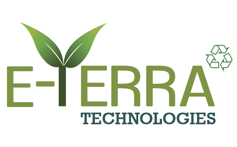5 TYPES OF ELECTRONICS YOU NEED TO RECYCLE
Electronic recycling is the process of giving electronic equipment which we no longer need to an electronic recycling vendor who either processes or converts them to new and useful equipment that is needed, or extracts valuable components from them for individual or industrial use. In the process of carrying out this function, the e-waste vendor carries out its activities using environmentally friendly methods.
Listed Here Are The Various Types Of Electronic Equipment Which We Need To Recycle:
Old Information Technology Equipment Such As Computers, Mobile Phones, Laptops, iPads, Batteries, Circuit Boards, Monitors, Desktops, Tablets, and Hard Drives are all recyclable.
Your mobile phones, iPads, laptops, and the like contain many toxic materials, including cadmium, lead, arsenic, and mercury which are harmful to the environment. When disposed of wrongly, it becomes a source of environmental degradation. But also contained in these gadgets are precious nonrenewable metals which could be retrieved if sent to a proper electronic recycling company.
A computer case contains 90% steel, 10% ABS or resin plastic (This varies from model to model).
Printed circuit boards contained in cell phones, iPads, and laptops are smelted to recover non-renewable resources such as silver, tin, gold, palladium, copper, and other valuable metals. Batteries are hulled to take out the plastic. The metals are smelted in specialized conditions to recover nickel, steel, cadmium, and cobalt that are re-used for new battery production and fabrication of stainless steel.
Hard drives contain 80% aluminum, 15% steel, and 5% circuit board which can be recycled.
Your Old Home Appliances Such as DVDs, Televisions, Video Projectors, Converter Boxes, Cable and Satellite Receivers, Game Accessories, Fans, Electric Cookers and Heaters, Radios, Refrigerators and Freezers, Microwaves, Electric Irons, Air Conditioners and Washing Machines are all recyclable.
These equipment contain useful and harmful components. While the useful components are recovered, the harmful ones are properly disposed of, if they are sent to a certified recycler. The majority of these devices contain plastics and metals that can be turned into useful products again.
Cathode Ray Tubes (CRTs) mostly found in televisions and computer monitors are processed to retrieve glass. CRT Tube Monitor: 95% glass 2% ferrous metal.
Digital Musical Devices Such As, Cd Players, Mp3, Radios, Stereos, Speakers, Dvd Players can all be recycled.
Have you ever considered that your abandoned musical devices can still be useful even though they can’t play music for you anymore? Of course yes, if you send them to an electronic recycler then their still valuable parts to be recovered. Resources such as plastics and other useful materials are recovered from them. So the next time your musical devices stops working or is replaced, do not dump the old one in the garbage or allow it litter your home or office. Rather, send them to an electronic recycler who properly recovers their good value from them.
CD ROM case contains 50% ferrous metal 50% plastic resin that is recyclable.
Old Computer Accessories like Cables, Cords, Wiring, Keyboards, Mice, Pointing Devices, Monitors, Fax Machines, Screws, Scanners, and Printers can all be recycled.
Keyboards contain 99% plastic resin with PVC and copper cabling that is recyclable.
Cables contain 90% PVC plastic, 5% copper, and 5% steel that could be recycled.
Degaussing wire contains 95% copper wire and 5% PVC plastic tape.
Mouse contains 90% plastic, 5% circuit board, and 5% cable that is recyclable.
Monitor Cases and bases also contain 98% plastic, and 2% ferrous metal, which can be recovered.
Various screws also contain 100% ferrous metal that could be recycled.
Old electronic, utility equipment such as leisure, lighting, and sporting equipmentare all recyclable.
Conclusively, as much as we take the responsibility to change our electronic devices when either old or damaged, we much better should take the responsibility to ensure they are given to an able electronic recycling vendor for proper disposal or remanufacturing, knowing that all the electronic devices we use, whether in the office or at home, could be recycled.


3 Response Comments
Do you take time to ensure data is entirely wiped off from computer hard drives before recycling it?
Hi. Yes, we do a thorough job with our data management processes. We degauss drives and then shred to irrecoverable recyclable pieces. CCTV footage of shredding process is also available for clients’ viewing. Plus a mobile data destruction truck is available to perform the processes at the client’s location for clients’ peace of mind and security of sensitive information guarantee.
Thanks for explaining some electronics that should be recycled. I had no idea that a lot of keyboards actually have copper cabling that can be recycled. I’m a little bit interested to learn how these can be taken apart to make sure that the right parts can be reused again.